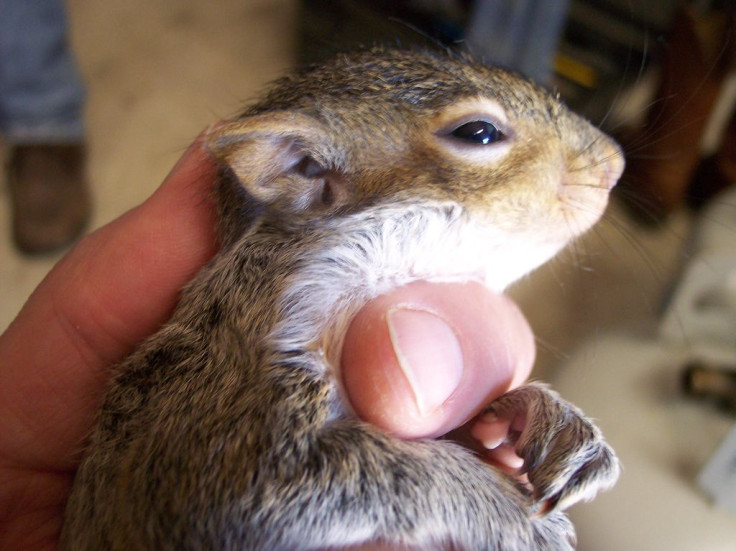Stress In Squirrels Brings Fast Growth; But Is There A Hidden Tax?

The red squirrel in Britain faces a competitive threat from the invasive North American grey squirrel, which are larger, more robust, and better able to digest acorns and other seeds.
But the stress caused by the more succsessful grey squirrel may be beneficial to the red squirrel's offspring. The red squirrel faces an existential threat every day of life, like any other animal as part of the ecosystem. A new study in Michigan suggests that such stresses may confer a competitive advantage to offspring in utero, at least in red squirrels.
Mothers with higher levels of the stress hormone cortisol birthed offspring that would grow significantly faster without any extra food, Canadian researchers reported in Science Express.
"What that suggests is that they're first able to predict what sort of environment their offspring will encounter... and they're preparing them for what their offspring are going to face," said Ben Dantzer, of the University of Guelph, lead author of the study he conducted at Michigan University as a Ph.D. student.
"The hardest part of the study was spending hundreds of hours grinding up fecal samples," he added.
The link between stress in utero and eventual growth may help to explain how environmental cues shape how an animal responds to stimuli and adapts to the environment. Canadian researchers Stan Boutin of the University of Alberta and Murray Humphreys of McGill University, worked with Guelph's biologist Andrew McAdam for 22 years studying red squirrels.
Over the years, the researchers noted crowded habitats during times of plenty, when white spruce seeds were more available, lead to higher levels of stress. During those times, the offspring that survived were the ones that grew the fastest. To quantify the effect of stress on growth, the researchers experimented by tricking the squirrels into believing the forest to be more crowded than it was — by playing recorded calls squirrels use to defend territory. They then compared the rate of growth among offspring to those from mothers who didn't hear the recordings.
The researchers found that squirrels in crowded conditions, whether real or imagined, had higher levels of cortisol in their feces. And, as a control, the researchers fed peanut butter laced with cortisol to some pregnant squirrels, finding a 41 percent faster growth rate among the babies in comparison to the effect from plain peanut butter.
The researchers said they were surprised by the findings, having thought the rate of growth would depend solely upon the availability of the food supply. However, the benefits of higher stress on squirrels might come with a physiological tax, with higher reproduction rates hampering the mother's health and, for the fast-growing offspring, a shorter lifespan.
Published by Medicaldaily.com



























